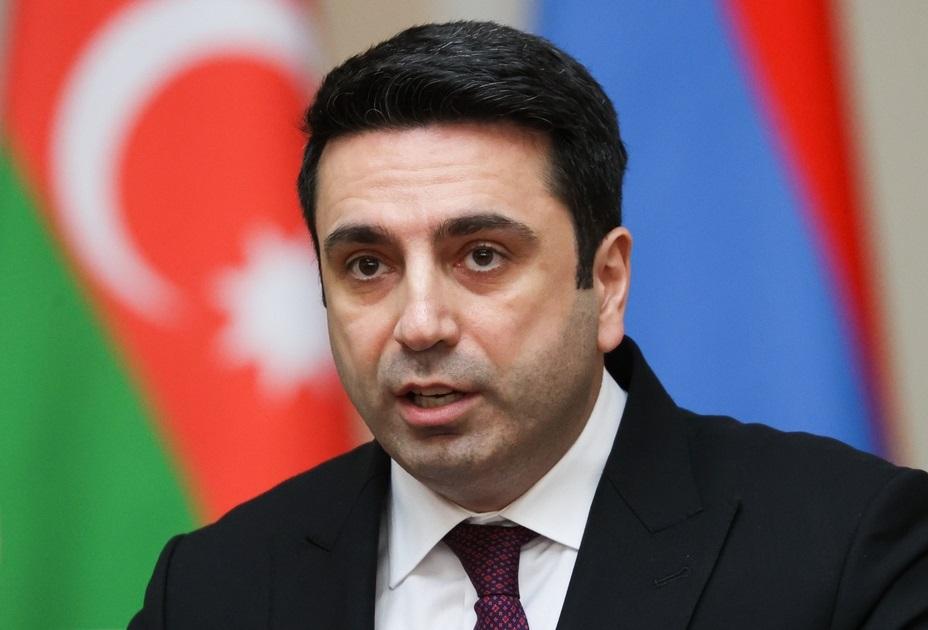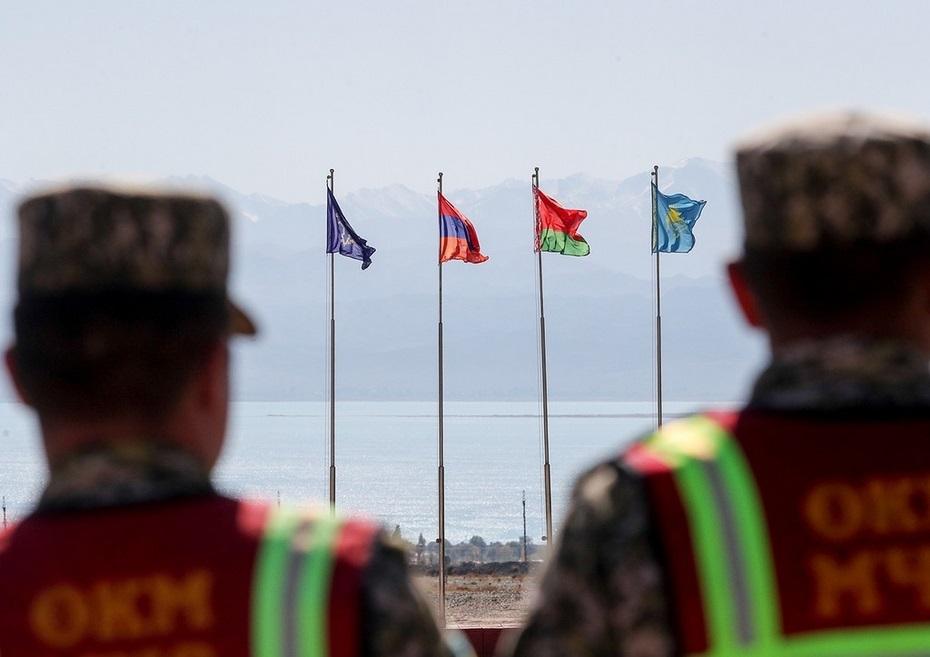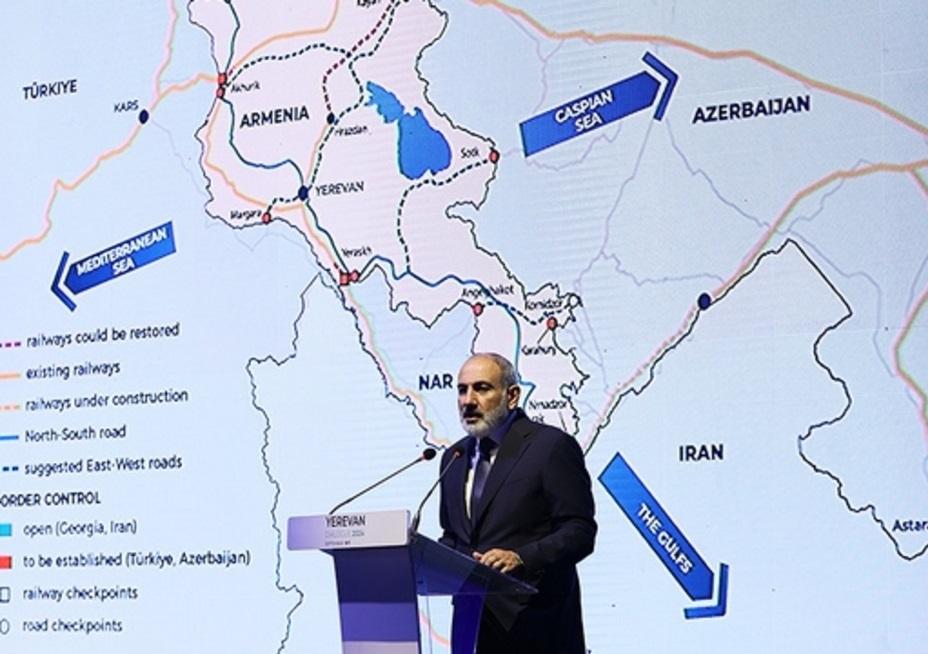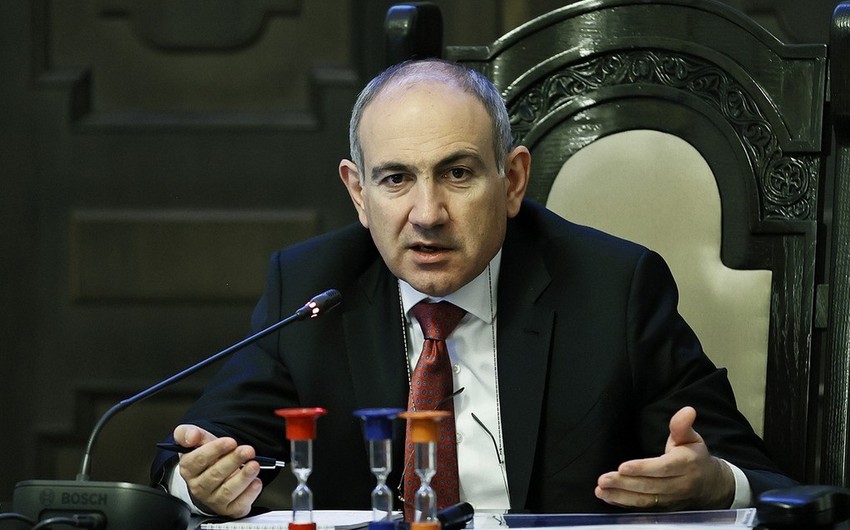Speaker of the Armenian Parliament Alen Simonyan stated that the republic doesn't plan to reconsider its relations with the CSTO, and doesn't intend to involve Moscow in the mutual unblocking of communications with Azerbaijan, either. At the same time, he noted that Armenia doesn't want tension in relations with Russia. Earlier, media noted that Armenian Prime Minister Nikol Pashinyan instructed his subordinates to improve relations with Moscow, Report informs.
NEWS.ru article presents a detailed analysis and expert opinions on what the contradictory statements from Yerevan indicate, and whether Pashinyan is truly ready for rapprochement with Russia.
What was stated in the Armenian parliament
Speaker of the Armenian Parliament Alen Simonyan during a briefing on March 25 stated that Yerevan does not intend to reconsider its position regarding the Collective Security Treaty Organization (CSTO). "What should we reconsider regarding the CSTO? It's the CSTO that should look at whether it exists or not. And if it exists, declare where this border is, and what it should do, and what it hasn't done," Simonyan pointed out.
He also noted that Armenia doesn't intend to return to the trilateral format of interaction with Russia and Azerbaijan on unblocking communications. "No, this issue is not being discussed. I don't know where you're getting this from. Stop seeing the Russian shadow in everything. Both from a positive and negative point of view. Close this topic," he stated. The politician also denied information that, on the instructions of Armenian Prime Minister Nikol Pashinyan, the country's departments began to intensify work with Russian partners.
At the same time, Simonyan acknowledged that Yerevan cannot constantly maintain tension in relations with Russia. "There was a problem in our relations, there were issues that were raised and will be raised. The assessments that are voiced from the outside have changed their vector, they do not correspond to reality. There is one reality: Armenia defends its independence and sovereignty," he stated.
The parliamentarian emphasized that Yerevan conducts an open foreign policy. "We have never said that we are breaking relations with any country in the world. The same applies to Russia," he added.

What Pashinyan said about relations with Russia
On March 20, the Armenian newspaper "Hraparak" noted that the head of the country's government, Nikol Pashinyan, instructed departments to prepare for rapprochement with Russia. According to the publication, the politician gave this instruction "against the background of recent geopolitical changes," including along the CSTO line. The article states that Pashinyan asked officials to more actively participate in events related to Moscow. The Armenian prime minister himself accepted an invitation to attend the Victory Day parade in Moscow on May 9.
Before this, the Armenian authorities tried to distance themselves from the CSTO and other international organizations involving Russia. On June 12, 2024, Pashinyan announced the republic's withdrawal from the CSTO, without specifying final deadlines. And in December, he stated that relations between Yerevan and the CSTO had passed the point of no return. He noted that returning to the organization is becoming almost impossible. Pashinyan emphasized that Armenia does not participate in the development of documents within the organization, nor in their discussion.
"We simply do not veto any document because, in essence, we consider ourselves outside the CSTO, let them do what they want. This situation makes Armenia's return to the CSTO increasingly difficult, if not impossible. I think that here we have passed the point of no return," he said.
In October 2024, during an international security forum in Warsaw, Armenian Foreign Minister Ararat Mirzoyan noted that the republic's authorities are calculating all the risks of the state's withdrawal from the CSTO.

What the contradictory statements from Yerevan indicate
The policy of Armenia's current authorities contradicts Russia's interests and is aimed at rapprochement with the European Union, Aram Sargsyan, leader of the Democratic Party of Armenia, said in a conversation with NEWS.ru. "It is no coincidence that tomorrow the Armenian parliament will again return to the bill that implies the need to accelerate the country's movement toward the EU. Of course, Yerevan does not plan to restore or improve relations with Russia, especially through the CSTO. Such an assumption could only arise if the project for Armenia's integration into the European Union were frozen," he explained.
There are no serious grounds for progress in relations between Russia and Armenia, he noted. "So far, relations between Moscow and Yerevan are overcooled. And until now, they are based on private issues, simmering in separate spheres. For example, through the EAEU, economic interest prevails there. I am critical of statements by officials, including the speaker of the Armenian parliament. I see no grounds for progress in Armenian-Russian relations," Sargsyan said.
Armenia has trapped itself by unequivocally charting its future vector through the European Union and ceasing constructive contacts with its old allies, political scientist Alexander Asafov pointed out in a conversation with NEWS.ru. "At the same time, since a certain tactical, if not strategic, line has been declared, it must also be maintained. Otherwise, voters will reproach them for inconsistency and short-sightedness. And international partners from the EU, like France, may reproach them for the same. Therefore, externally contradictory positions arise," he explained.
He noted that international politics is now changing under the influence of superpowers—Russia and the United States—and it is not yet clear to other participants where to move. "Therefore, we will hear many more contradictions not only from Armenian politicians but also from a number of other countries. The vector directed toward the European Union and NATO shows not just its inefficiency, but its unfeasibility even when receiving convincing promises," Asafov added.
Yerevan doesn't intend to change anything in its relations with Russia for now, Nikolai Silaev, a leading researcher at the Center for Caucasus Problems and Regional Security at MGIMO, said in a conversation with NEWS.ru.
"And no trends toward rapprochement are visible. For some unknown reason, Yerevan wants to maintain spoiled relations with Moscow. It's difficult for me to say why this is happening. Russia should respond to this with restraint. This is the only right way," the expert said.

What will happen to the agreement with Azerbaijan, how Trump will affect Yerevan
The current authorities in Yerevan have made themselves dependent on Azerbaijan's demands, particularly regarding the future peace agreement, Sargsyan believes. They are now in a precarious position and therefore seeking a patron in the West.
"These erratic movements prevent Armenia from building an adequate, consistent policy. And if Azerbaijan makes new demands, the authorities in Yerevan will find themselves in an openly idiotic position," he emphasized.
Pashinyan and his administration, according to Sargsyan, owe much to the European Union and the US Democratic Party, so they haven't yet managed to adapt to the changes in world politics initiated by Trump and Putin.
"But whether Washington will pressure the current Yerevan leadership to change course and begin rapprochement with Russia remains a mystery. Trump may well bet on Türkiye and Azerbaijan rather than Armenia. Another thing is that close relations with Russia would be beneficial for Armenia in any case, if we're not talking about the current government," the politician pointed out.
According to Asafov, Yerevan's desire alone is not enough to resolve disputed issues with Azerbaijan. "This is a road with not just two-way, but three-way traffic. Armenia's desire alone is insufficient here, because for any decisions to be made on this track, serious discussion is needed," the expert noted.


 https://images.report.az/photo/d70064ab-1d0b-3b62-be0f-32e1a4de0442.jpg
https://images.report.az/photo/d70064ab-1d0b-3b62-be0f-32e1a4de0442.jpg

